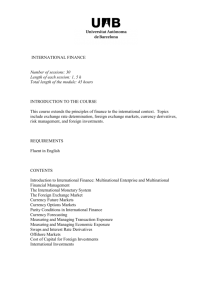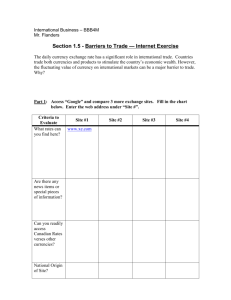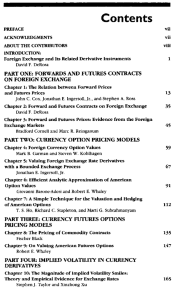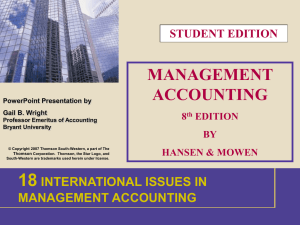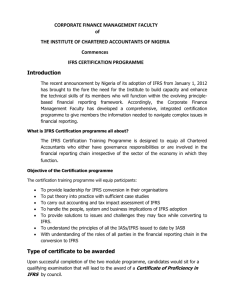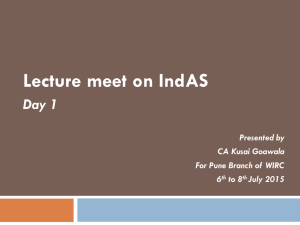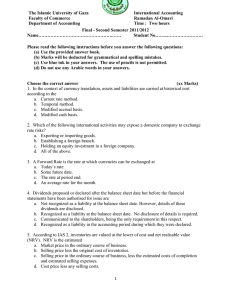Document - Oman College of Management & Technology
advertisement
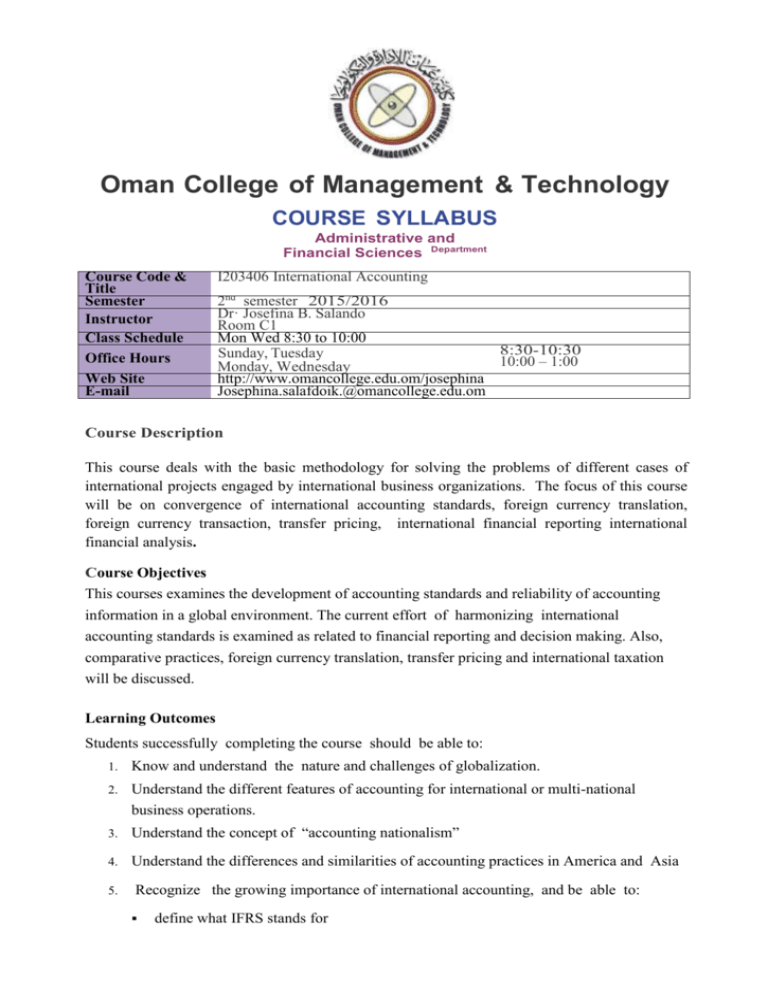
Oman College of Management & Technology COURSE SYLLABUS Administrative and Financial Sciences Department Course Code & Title Semester Instructor Class Schedule Office Hours Web Site E-mail I203406 International Accounting 2nd semester 2015/2016 Dr· Josefina B. Salando Room C1 Mon Wed 8:30 to 10:00 8:30-10:30 Sunday, Tuesday 10:00 – 1:00 Monday, Wednesday http://www.omancollege.edu.om/josephina Josephina.salafdoik.@omancollege.edu.om Course Description This course deals with the basic methodology for solving the problems of different cases of international projects engaged by international business organizations. The focus of this course will be on convergence of international accounting standards, foreign currency translation, foreign currency transaction, transfer pricing, international financial reporting international financial analysis. Course Objectives This courses examines the development of accounting standards and reliability of accounting information in a global environment. The current effort of harmonizing international accounting standards is examined as related to financial reporting and decision making. Also, comparative practices, foreign currency translation, transfer pricing and international taxation will be discussed. Learning Outcomes Students successfully completing the course should be able to: 1. Know and understand the nature and challenges of globalization. 2. Understand the different features of accounting for international or multi-national business operations. 3. Understand the concept of “accounting nationalism” 4. Understand the differences and similarities of accounting practices in America and Asia 5. Recognize the growing importance of international accounting, and be able to: define what IFRS stands for explain the general uses of US GAAP and IFRS recognize that IFRS will be important in the future 6. Understand foreign currency transactions 7. Translate foreign currency financial statements 8. Interpret foreign currency financial statements 9. Understand fundamental issues for international transfer pricing 10. Appreciate the need for international financial statement analysis 11. Be aware of the different accounting organizations/committees in charge of developing and harmonizing the rules and guidelines for the practice of accounting Course timetable Week 1 2 Topics Chapter 1- Introduction to international accounting, nature and scope Accounting issues associated with Foreign Direct Investment ( FDI) 12 13 14 Chapter 2 – Accounting for Multi-national Operations (MNEs) Challenges of Global Business Foreign Exchange Risk Translation and Re-measurement of foreign operations First –Term Examination Chapter 3 – International Accounting Standards Progress towards harmonization of Accounting Standards Chapter 4 – Comparative Accounting : America and Asia National Accounting Differences Chapter 5 – Issues in International Financial Reporting Second-term Examination Chapter 6- Transfer Pricing Chapter 7- International Financial Statement Analysis Why the need for international FS analysis 15 16 Chapter 8- International Financial Reporting Standards (IFRS) Comprehensive Review 3 4 5 6 7 8 9 10 11 Final Examination Student Activities: 1. Students are required to submit a research about the Ethical violation and Accounting Scandals that happened in international businesses. 2. Work on case studies about international reporting and updates about international accounting standards. : Textbook/References: International Accounting By: A.K. Das Mohapatra International Accounting (5th Edition) Frederick D.S. Choi, Gary K. Meek Performance Evaluation: The grade will be based upon the following: First Exam Second Project (Exam) Class Participation & Activity Final Project (Exam) 20% 20% 10% 50% Student Responsibility: • Mobile phones must be turned off during class time. • Students are expected to participate in class discussion and critiques. Failure to do so will result in grade reduction. • Students are expected to follow OCMT’s standardized attendance policy. Lecture attendance is mandatory. Students are allowed maximum of 15% absence of the total classroom hours. • Students are required to work on projects in and outside of class, and must Complete all assignments. • Meet all deadlines and complete all assignments, (Late papers will not be accepted). • Come on time and stay until class is over.




